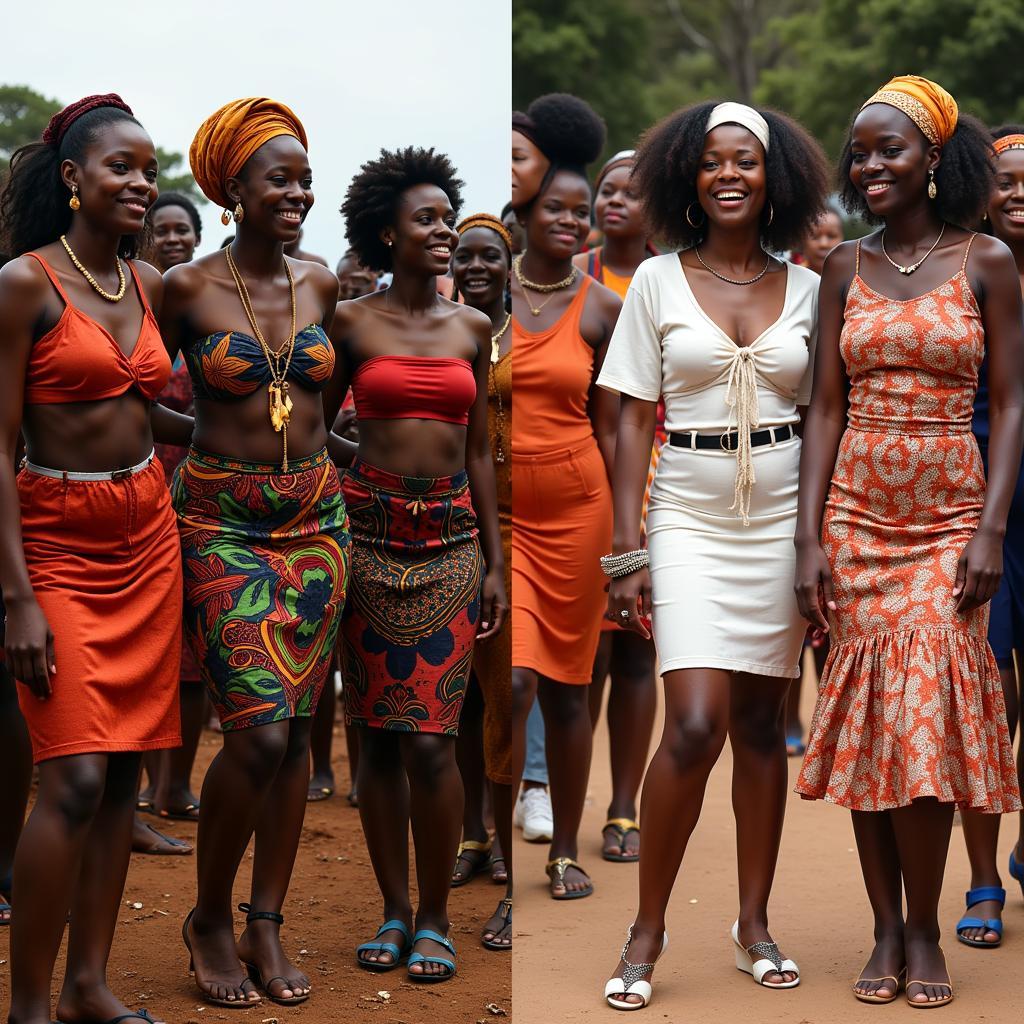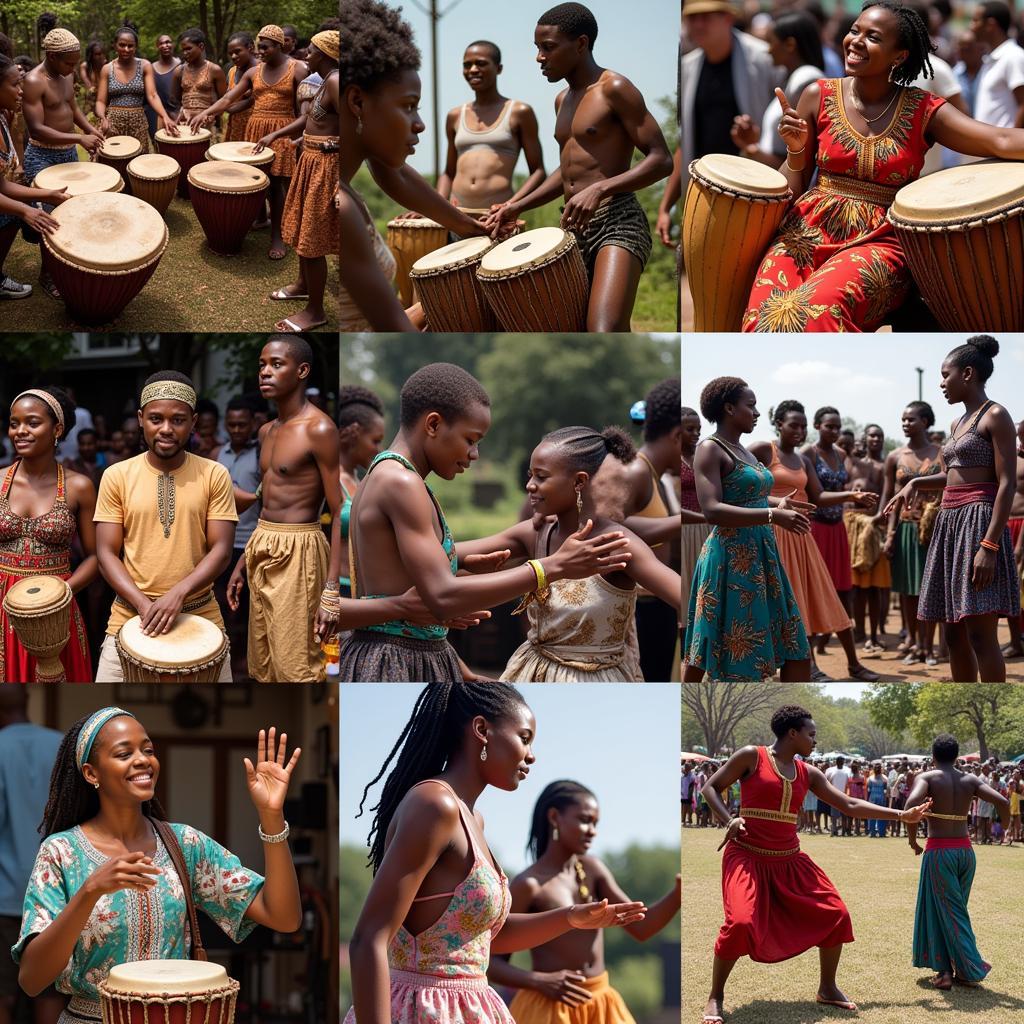Exploring the Vibrant World of African Children’s Literature
African children’s literature is a rich tapestry of storytelling, encompassing folktales passed down through generations, contemporary stories reflecting modern African life, and everything in between. This diverse body of work plays a vital role in shaping young minds, fostering cultural pride, and promoting literacy across the continent and beyond. From adventurous tales of mythical creatures to heartwarming stories of family and community, African children’s literature offers a unique window into the diverse cultures and experiences of Africa.
The Importance of African Children’s Literature
African children’s literature serves several crucial functions. It helps children connect with their cultural heritage, learn important life lessons, and develop a love for reading. These stories often feature strong moral messages, promoting values such as respect for elders, community cooperation, and environmental stewardship. Furthermore, by showcasing diverse characters and settings, this literature fosters empathy and understanding in young readers, allowing them to appreciate the richness and complexity of the African continent. It also helps to challenge stereotypes and promote a more nuanced view of Africa and its people. For children in the diaspora, these stories can be a powerful link to their ancestral homeland.
Did you know that many African folktales have been adapted into picture books and chapter books, making them accessible to younger audiences? This ensures that these timeless stories continue to be shared and enjoyed by new generations.
Exploring Different Genres of African Children’s Literature
African children’s literature offers a wide range of genres, including traditional folktales, contemporary fiction, historical fiction, and poetry. Folktales, often passed down orally, feature animal characters, mythical creatures, and wise elders who impart valuable lessons. Contemporary fiction reflects the realities of modern African Life, addressing issues such as urbanization, education, and family dynamics. Historical fiction explores significant events in African history, offering young readers a glimpse into the past. And finally, poetry introduces children to the beauty and power of language, expressing diverse emotions and perspectives. Each genre plays a crucial role in shaping young readers’ understanding of Africa and the world around them. For a deeper understanding, explore resources like the african childrens literature thesis.
“African children’s literature isn’t just about entertainment,” says Dr. Abeni Olaoye, a renowned scholar of African literature. “It’s a powerful tool for education, cultural preservation, and social change.”
Promoting Literacy and Access to African Children’s Literature
Access to books and literacy programs remains a challenge in many parts of Africa. However, numerous organizations and initiatives are working to improve literacy rates and provide children with access to quality reading materials. These efforts include establishing libraries, mobile libraries, and book donation programs. Additionally, initiatives are underway to translate books into local languages, ensuring that children can access stories in their mother tongue. This is crucial for fostering early literacy and promoting a lifelong love of reading. You can learn more about related topics in resources such as african american children's literature the first one hundred years.
What are some popular themes in African children’s literature?
Common themes include family, community, resilience, and the importance of respecting nature.
Where can I find African children’s books?
Libraries, bookstores, online retailers, and specialized African bookstores are good places to start. Check out resources like african fables and stories.
Conclusion
African children’s literature provides a vibrant and invaluable resource for young readers, fostering a love of reading, cultural pride, and a deeper understanding of the African continent and its diverse cultures. By supporting initiatives that promote literacy and access to books, we can empower future generations and celebrate the rich tapestry of African storytelling. Remember to explore resources like african american short stories for kids and african child day 2019 for more information.
FAQ
- What is the significance of oral storytelling in African culture?
- How does African children’s literature contribute to cultural preservation?
- What are some challenges facing the development of children’s literature in Africa?
- How can parents and educators encourage children to read African stories?
- Where can I find resources for learning more about African children’s literature?
- What are some notable authors of African children’s literature?
- How can I support initiatives that promote literacy in Africa?
When you need support, please contact us: Phone: +255768904061, Email: kaka.mag@gmail.com or visit us at: Mbarali DC Mawindi, Kangaga, Tanzania. We have a 24/7 customer service team.





